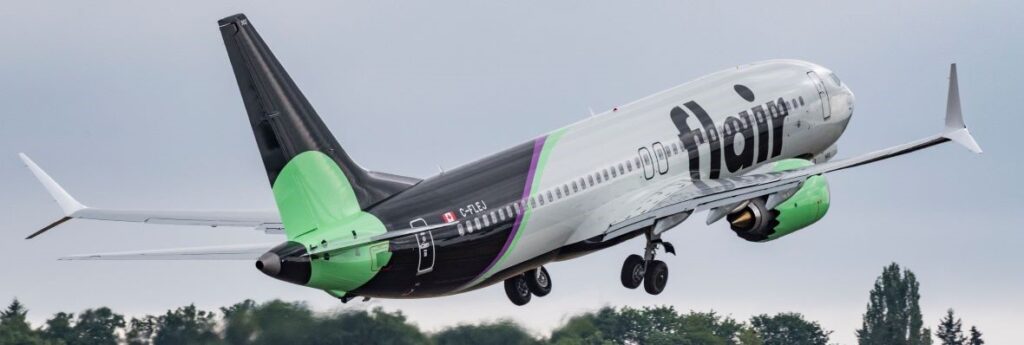Faced with plane delivery delays and hefty debts – including a hefty unpaid tax bill that has prompted the Canada Revenue Agency to obtain an order for the seizure and sale of the carrier’s property – Flair Airlines says it put expansion plans on hold, at least until next year.
“This will be a more muted year,” Flair CEO Stephen Jones, “but we’ll look to get back into growth mode strongly in 2025.”
As recently as the fall, the Edmonton-based budget airline aimed to boost its fleet to 26 Boeing 737 Max jetliners in 2024, up from its current roster of 20. On Monday, Jones said the fleet likely won’t grow much in the coming year, due partly to hold-ups at Boeing Co.
The US plane-making giant has faced scrutiny from regulators over its safety record, most recently after a midflight blowout of a side panel earlier this month that grounded 737 Max 9 jetliners for weeks.
Jones said the Max program has had a number of delays on delivery. Aircraft that were slated to arrive in the spring won’t be landing at Flair’s gates until late fall, “which is not a great time for capacity growth.”
“This is a tough industry,” he said. ”The development of the financial performance will take some time.”
Flair Airlines owes the federal government $67.2 million in unpaid taxes, court documents show, prompting the Canada Revenue Agency to obtain an order for the seizure and sale of the carrier’s property. The sum relates to unpaid import duties on the 20 Boeing jets that make up Flair’s fleet, Jones said.
However, he said the Federal Court order obtained by the tax agency in November has no impact on the carrier’s operations, which have expanded over the past year and ratcheted up competition with rival airlines.
The ultra-low-cost carrier faces increased competition from WestJet and from Porter Airlines and budget rival Lynx Air, both of which are expanding swiftly.
A greater focus on sun destinations this winter has also put Flair in direct competition with Sunwing as well as Air Transat.
“I think Flair is probably in the toughest position of any player in the Canadian marketplace right now,” said Duncan Dee, former chief operating officer at Air Canada.
He pointed to Flair’s debts and plane seizures as evidence of a struggle to stay afloat. “The picture that it paints is one where Flair faces much more significant challenges than what would appear on the surface.”
Meanwhile, a Facebook page dedicated to Flair passenger woes continues to log issues, but features fewer complaints than in mid-2022, when travel chaos descended on a sector unprepared for the surge in post-pandemic flight demand.

